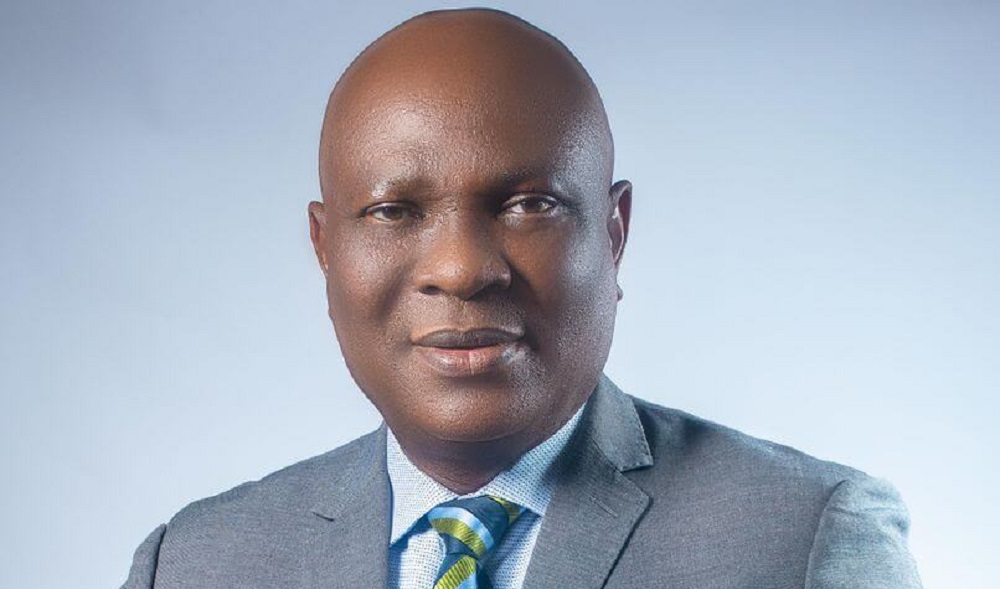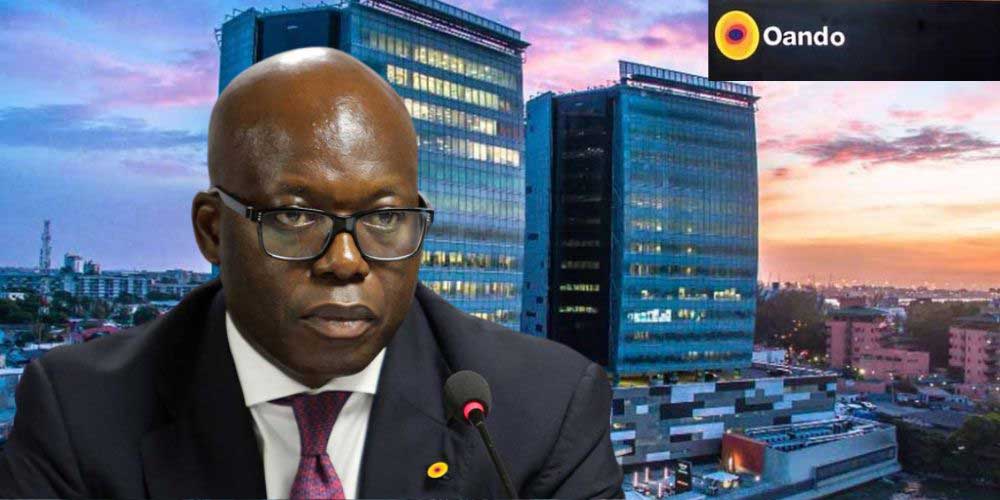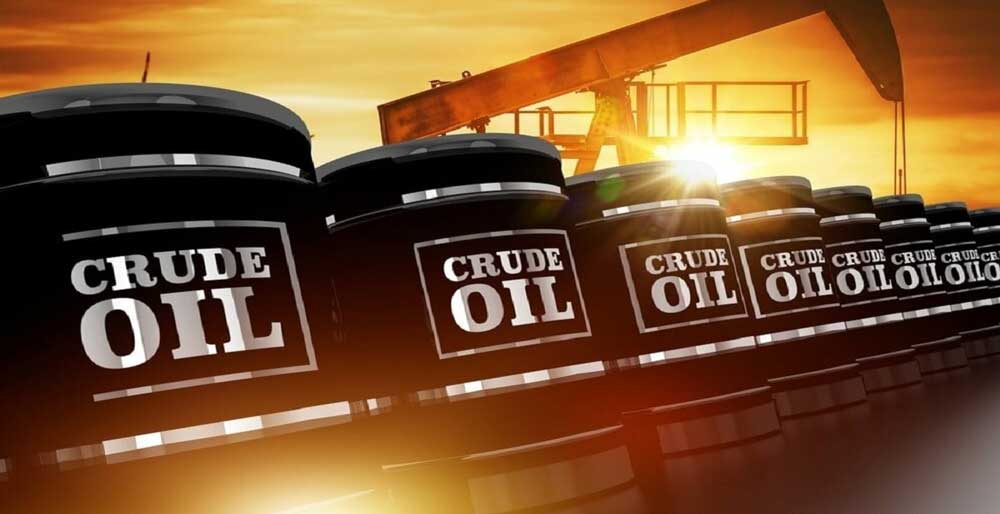INTERVIEW: NNPC Will Meet FG’s 2.06 Million Barrels Per Day Oil Production Target-EVP Upstream, Ntia

In November 2024, Udobong Ntia was appointed as the Executive Vice President, Upstream, of the Nigerian National Petroleum Company Limited (NNPCL) by the company’s Board of Directors. Ntia, a dynamic leader, recently headed the NNPC delegation at the prestigious CERAweek by S&P Global, which took place from March 10-14 in Houston, Texas, United States. As NNPCL looks to shape Nigeria’s energy future in alignment with the Petroleum Industry Act of 2021, Ntia’s leadership is set to play a pivotal role.
At CERAWeek, NNPCL was on a mission to forge strategic partnerships with global investors while engaging with the Donald Trump administration’s policies on hydrocarbon drilling. The event was a key opportunity for Ntia and his team to bolster Nigeria’s position in the global energy landscape.
In an exclusive interview with Philip Ukpe of THE WHISTLER, Ntia outlines his ambitious upstream strategy for NNPCL amidst the global energy transition. He delves into the company’s successes in combating crude oil theft and shares his insights on how the US administration’s energy policies align with Nigeria’s goals for sustainable energy development.
EXCERPTS..
What were the expectations of the NNPCL before embarking on the 2025 CERAweek by S&P Global?
Two things we had in mind before coming to this conference. Number one is upstream-focused in terms of production, and what we are going to be doing. The second one was attracting investments into the country- Nigeria. So, we had panel discussions on attracting investments in the region. It was a very good time to talk about what NNPC is about, what Nigeria is about to gain by investors coming in, and of course, what we offer as well.
What we put forward to investors what will attract them to come in. So, we laid that all out and I think it worked out all well. I think there is big enthusiasm in people coming over to Nigeria, which has already started with the likes of Bonga North Final Investment Decision (FID). We are speaking with other partners as well and they are very optimistic about bringing in investments through other FID opportunities.
We are in a complex world where there is an intense push for energy transition. What is your upstream strategy for 2025 and beyond?
Gas is always going to be the transition fuel. It is what we use and we have an abundant gas in Nigeria. Nigeria is a good destination of anybody who wants to invest in gas because we have about 207 trillion cubic feet (TCF) of gas that is available and is waiting to get explored.
We are positioned for energy transition. We are also looking to see how we can in some instances, drill the oil to get the gas- it’s about oil to gas. So, some of them will go hand in hand. I believe Nigeria is very well positioned for energy transition as well to see how we can make that work.
One of the core mandates of the NNPCL based on the Petroleum Industry Act (PIA), 2021 is energy security. What is NNPCL doing in terms of upstream to ensure energy security for Nigerians?
Energy security, not just for Nigeria but for our partners, neighbouring countries, Europe, for Asia and we play in all that space. We are increasing our production from about 900,000 barrels per day two to three years ago to about 1.75mbpd in January 2025. That is a significant drop.
The entire NNPC upstream is in laser focus to see how we can keep growing our production and we do see line of sight from where we are right now to where we ought to be. We will keep doing that, ultimately get oil out of the ground, provide security internally for the refineries that are in the country- the local refineries, and also have oil available for export. So, ultimately, we will still be a net exporter of oil. But we will ensure we keep our oil needs in the country secure.
Can you share the successes recorded so far in the war against oil theft which led to increase in oil output?
Part of the growth that we see from 900,000bpd to 1.75mbpd is because of the tremendous successes we have seen in curtailing crude oil theft. Security keeps improving. Recently, Mr. President (Bola Ahmed Tinubu) mandated the National Security Adviser, Mr. Nuhu Ribadu to be more focused on that. So, we are shifting the oversight stewardship on NNPC to the office of the NSA. And they are doing an amazing job coordinating with the military, the Air Force and the Navy and also working with private security bodies as well to ensure pipelines are protected.
We have seen great stride with that. There is still a little bit of pockets here and there. In recent times, we have seen activities around gas pipelines which the security forces are taking steps to curb and to eliminate. As we see new frontiers, we will be managing all those things as well and also staying a brace and ensuring some things don’t crop up- they don’t happen.
So, energy security is tied in a great deal to security in Niger Delta in terms of managing our assets and making sure that they are protected.
The federal government is targeting 2.06mbpd annual average by the end of the year. Can you share plans to boost oil production beyond the current 1.75mbpd?
We are focused on that and we believe very strongly that we are going to be able to meet it. We are taking steps in that direction. I would say. there are about 38 rigs in the country as we speak. That is a lot of rigs working both land, swamp, deep water and a whole lot. So, there are lots of activities going on. Could there be more, absolutely.
We have plans to look to see how we can bring third-party entities to help with fields that are currently fallow or deemed fallow- let us see how we can just close that gap and get people to work more and bring oil out of the ground. We are capped by OPEC. We think we are producing within our OPEC limit and we do think we will keep stretching production to meet the demands of oil the country needs.
The US Energy Secretary shared positive plans for drilling hydrocarbons. Can you share your thoughts and how it aligns with Nigeria’s energy goal?
A lot of things have changed for Nigeria. We were very involved with drilling oil and we were also involved in energy transition. So, the current administration in the US is very well focused on ‘drill baby drill’- just drill whatever you can and all. We are aligned with that. We have not shifted our strategy from where we are. We have always been drilling and we will keep drilling. We believe we have a lot of room to keep drilling.
Carbon footprint, which is what everybody is worried about is very low. In the African continent, I believe the carbon footprint is about four per cent of what the entire globe is doing. China is doing about 30 per cent. the United States as an entity is doing about 15-18 per cent in terms of carbonization, and I think Europe is doing just over 50 per cent of what the US is doing at about 7-8 per cent.
So, we do think from a carbon footprint standpoint, Africa has more room to do that. We are not saying we are going to intentionally mess up the environment. Of course, no. Per capita, an African is emitting about one metric ton of carbon dioxide into the atmosphere. In other climes, it is significantly a whole more than that. So, we are not soiling the environment. That is not our plan, but our strategy has not changed with drilling and we believe we have not reached limits at all from a carbon footprint standpoint.
Are you optimistic about the prices oil crude oil?
If I were, I wouldn’t be in this place. I would be a very rich man if I could tell what the prices oil crude oil would be. There are a lot of things that go into the price of oil. One of which is geopolitics, which you know we really cannot measure. There are the forces of demand and supply. If demand goes up, the price is going to go up. If the supply goes up, then there will be a reduction in the price.
As you leave the winter months, when the demand for heating begins to get low, you will see the prices will be a little bit relaxed. But over time, as we get into the summer months, as demand for industrialisation goes up across nations and regions, I believe we are going to see an uptick.
I don’t see oil prices going down tremendously given the energy security tensions we have in the region, especially in Europe right now, it is not going to cure itself immediately. It is going to take a while and we do see oil prices staying where we believe we can work with.
INTERVIEW: NNPC Will Meet FG’s 2.06 Million Barrels Per Day Oil Production Target-EVP Upstream, Ntia is first published on The Whistler Newspaper




